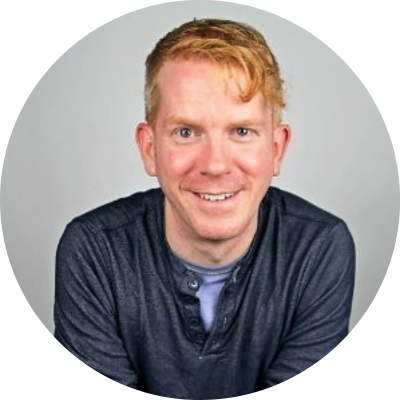Deacon Spotlight: Will Nolan
Will Nolan (1994, BA in English, Minor in Theater)
Chief Marketing and Communications Officer at the EveryLife Foundation for Rare Diseases, Bogota, New Jersey
Tell us about your current job role and employer. What are you currently working on?

I am currently leading all marketing and communications for a rare disease nonprofit organization. The EveryLife Foundation is an umbrella organization focused on advancing policy priorities on behalf of the entire rare disease community. Currently we are undergoing a major rebranding/renaming of the organization, which includes a new visual identity and a brand new website. I am managing these undertakings, as well as our day-to-day communication priorities at a time when our nation’s healthcare system is under attack. I am also part of the Executive Leadership Team of the organization, helping ensure our employees are successful and happy at the organization, while also partnering with our Board of Directors to help advance our mission.
What key personal and/or career experiences led you to where you are today?
Most of my professional communications career has been in the nonprofit world or mission-driven corporations. I thrive at organizations that have a sense of purpose and strive to help leave the world better than we found it. As someone impacted by rare disease and as a member of the LGBTQIA+ community, I am particularly drawn to organizations that focus on marginalized communities, helping to give a voice to those the world often tries to silence.
What is the most challenging aspect of your job? How do you navigate that challenge?
My biggest challenge is probably juggling multiple priorities in a given day (sometimes in a given hour!). It requires pulling together internal stakeholders to better assess what is a real priority and what can wait. The key to being a good communicator is listening and never is that more important than when you are trying to understand the concerns of different teams.
What advice would you give to Wake Forest graduates about developing their personal life habits after college (finances, health, values, work/life balance)?
I think you have to give yourself grace. There is a learning curve and you will make numerous mistakes. But it is also the time in your life when, hopefully, you have a little bit of safety net and you can learn from those mistakes without terribly high consequences. Somethings, like work/life balance, I am still trying to master. But I’ve always found that if I stick to my values and core beliefs, I will find the right job and I will make what I need to make to cover my expenses and save a little.
We know that relationships are important for any kind of development. How do you build and maintain your network?
I learned early on that everyone is a contact. By nature, I am not someone to burn bridges, but in the professional world this is particularly important because you never know where your next opportunity will come from. Social media, for all of its faults, provides great platforms to connect and reconnect with past employees and alumni. Platforms like LinkedIn, also give you the opportunity to reach out to people at organizations you may want to work at. Over the years, I’ve had some great virtual coffee dates with people and they have proven to help me find my next gig or my next hire.
Tell us about your mentoring relationships. What impact have these relationships had on your career and life?
My earliest mentoring relationships began at Wake Forest with professors from the theater department who I continue to stay in touch with. I love learning from people’s personal experiences in any number of industries, and I have tried to pass learnings from my own experiences on to those I have mentored. I believe mentoring is a two way relationship, where both parties can learn a tremendous amount from each other. I also think that regular interactions help — consistency is key.
What advice would you give to current Wake Forest students and/or young alumni who are interested in working in your industry?
I spend a large majority of my time at work writing. I think there is a universality to communications and marketing, regardless of the field you choose to work in. There are a number of new tools and shortcuts being developed for a variety of professions (including AI), but at the end of the day, I have to know how to think strategically and communicate. That is not something that will be replaced by a machine because there is a nuanced voice, tone, and messaging that only I can provide. Write. It can feel like a dying art or tool, but it is critical and there are so many communities that need those who can write to be their voice.
What’s next for your career? What future goals or plans are you pursuing?
Having just started the job in December 2024, I’m really looking forward to the next couple of years, especially as we launch our new identity. I think leading the organization and our community during this particularly challenging time in our country’s history will be exciting. One day, I could see myself leading a nonprofit organization, ideally in the arts.
Story published in September 2025. For current updates about Will, visit his LinkedIn profile.
